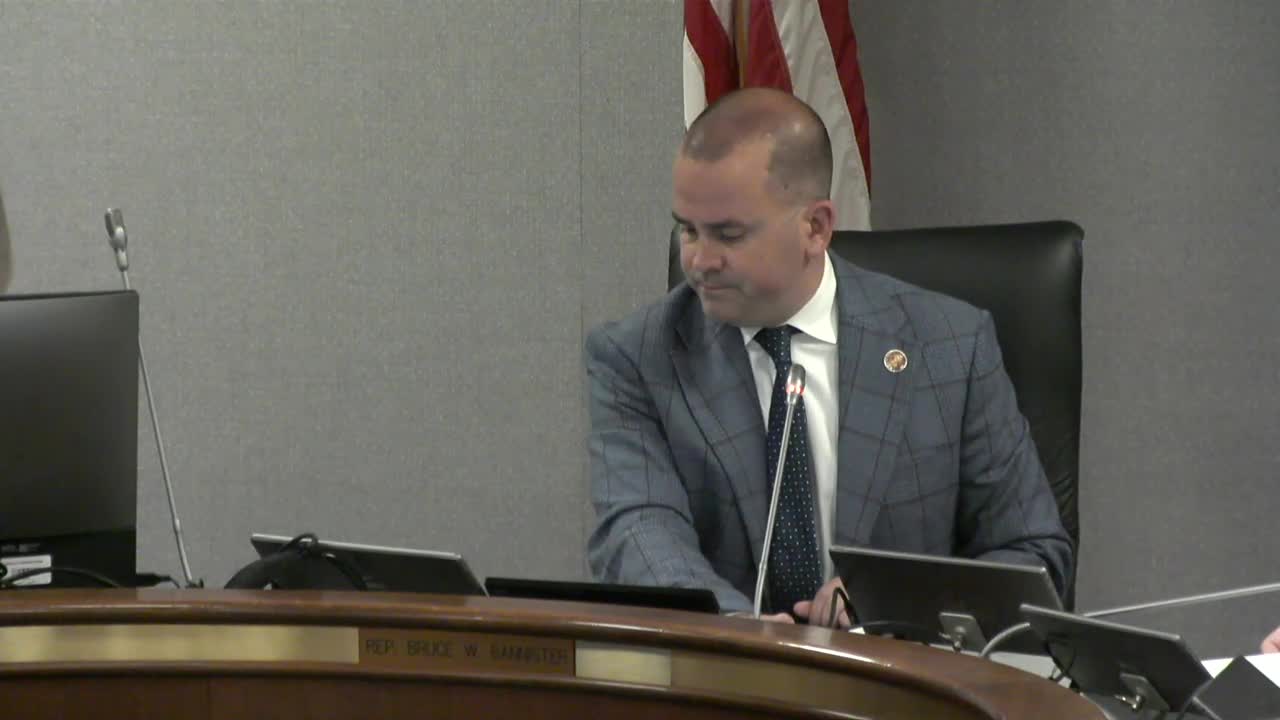Lawmakers debate cutting boat assessment ratio; counties warn of $60 million local revenue hit
Get AI-powered insights, summaries, and transcripts
Subscribe
Summary
Supporters of H 3858 urged lowering South Carolina’s boat assessment ratio from 10.5% to reduce what they called an unusually high tax on boat owners. County auditors and local officials warned the proposal could cost local governments roughly $60 million annually and shift taxes to homeowners and vehicles unless drafting changes are made.
Representative Brewer introduced House Bill 3858, saying South Carolina’s 10.5% assessment ratio on boats is the highest in the country and that constituents repeatedly asked for relief. “Currently, South Carolina has the highest tax rate in the country when it comes to our boat taxes at 10 and a half percent,” the sponsor said as he opened the hearing.
The bill would cut the assessment ratio on boats and motors; witnesses and municipal officials said the proposal as filed would also eliminate motor titling or registration language in some drafts, which they warned could further reduce taxable records.
County auditors and the Association of Counties told the subcommittee the fiscal impact on counties, cities and school districts could be large. Christie Hubbard, Oconee County auditor, said Oconee has about 15,500 boats, of which roughly 25% are registered to out-of-state owners, and that “our boat taxes generate around $4,000,000 each year.” Hubbard warned that halving assessed value would reduce that revenue by about $2,000,000 and force other property taxpayers to shoulder the difference.
Peter Tecklenburg, Charleston’s county auditor, and other county officials said a one-time or blunt statewide 50% cut in assessment ratio is a poor match for diverse local millage rates and county budgets. Tecklenburg urged a phased approach, noting South Carolina previously reduced vehicle assessment ratios over several years rather than imposing an immediate, uniform cut. He also recommended addressing titling and the separate valuation of hulls and motors in a targeted manner.
Association of Counties representatives quantified the potential local impact: Owen McBride said the total fiscal hit to counties, cities and school districts could be about $60,000,000 annually and that roughly 70% of that impact (approximately $42,000,000) would fall on school districts. McBride provided county-level estimates in the hearing record: for example, Aiken County about $1,100,000 annually and York County about $2,000,000.
Union County testimony emphasized local consequences for small counties. Brad Valentine said the bill could force a one- or two-mill increase in county and school millage and that counties without marinas or boat ramps would not see new registrations sufficient to offset lost revenue.
Proponents pointed to cross-border disparities and to counties that have already reduced their assessment ratios. Geddes Brannon, who said he represents hundreds of thousands of boaters and anglers, said the disparity across county lines was unfair to boat owners in some areas and cited DNR data showing significant boat growth in counties that reduced rates earlier.
Representative Rutherford, speaking as a boat owner, said high taxes have made boat ownership unaffordable for many residents: “It is untenable in the state to own a boat,” he said, and urged members to vote for the bill.
After debate and questions the committee took a roll call on the bill. The transcript records recorded “aye” votes by Representative Collins, Representative Claiborne, Representative Moss, Representative Hewitt and Representative Long. With roll-call votes recorded as shown in the hearing excerpt, the committee then adjourned debate on two other pending bills.
Votes and next steps
- Committee roll call on H 3858: several named members recorded as voting “aye” (Representative Collins, Representative Claiborne, Representative Moss, Representative Hewitt, Representative Long); the transcript excerpt does not include a complete, named tally for all committee members in the provided record. Committee adjourned debate on additional bills and will continue the legislative process.
